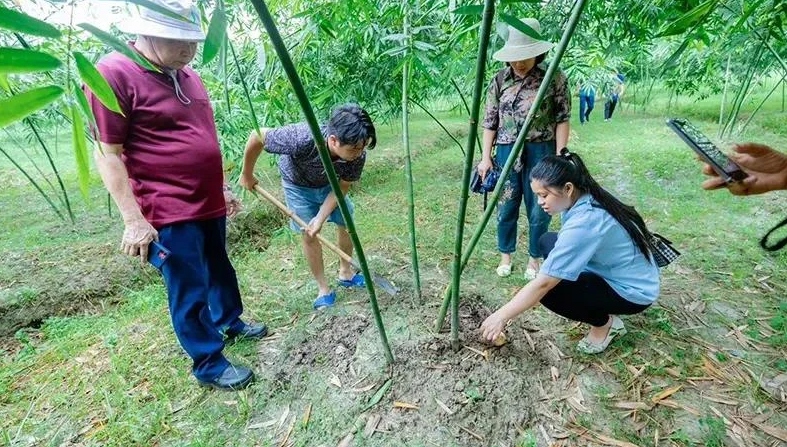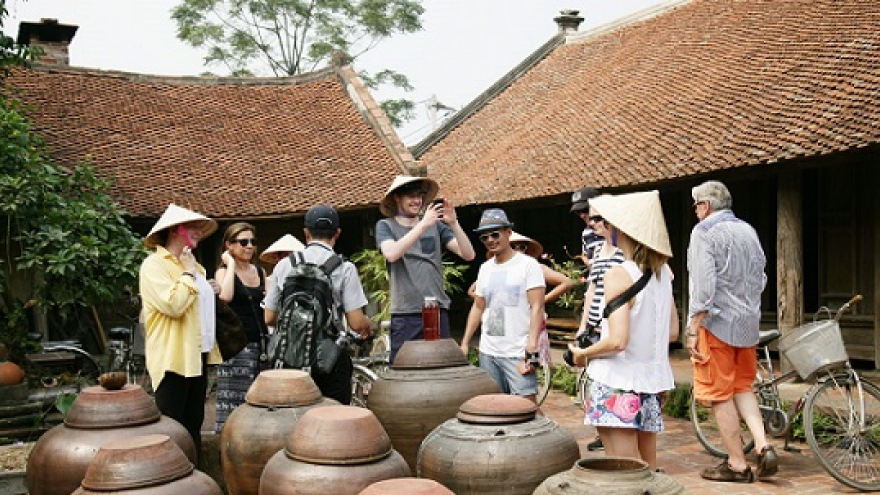Agricultural ecotourism a way to increase visitor revenues
As an agricultural country boasting many traditional craft villages and beautiful landscapes, Vietnam holds considerable advantages for developing rural ecotourism, which has emerged as a trend among both domestic and international tourists in recent years.

Ngo Truong Son, chief of the central coordinating office for new-style rural areas, said there are 584 agricultural and rural tourism models nationwide at present. The Ministry of Agriculture and Rural Development also approved a list of 20 pilot agricultural and rural tourism models for implementation until 2025.
Localities are promoting tourism resources linked with agriculture and rural areas. Products of agricultural and rural tourism are also being diversified, meeting demand for domestic and international travellers.
Besides, he noted, many are tapping values of the traditional culture, farming practices, local delicacies, natural landscapes, festivals, and craft villages to create distinctive tourism products. They are also developing this type of tourism in tandem with marketing local agricultural products, especially those under the “One Commune, One Product” (OCOP) programme.
The National Agricultural Extension Centre said that the large number of charming landscapes and traditional craft villages is now an impetus for agricultural tourism. Aside from helping change the economic structure and boost the sale of farm produce, the concurrent development of agriculture and ecotourism is also helping preserve and bring into play the cultural values of rural areas while raising the brand value of local products and specialties.
Several agricultural and rural tourism models have proved a magnet to Vietnamese and foreign holidaymakers.
For example, the Con Chim community-based tourism model in the Mekong Delta province of Tra Vinh offers visitors an ideal destination to relax amidst waterways and garden landscapes. The Khim Noi community-based tourism and culture village in Mu Cang Chai district of Yen Bai province and the home stay services in Lac village of Hoa Binh province give them hideaways from the busy life, together with a chance to explore the customs of ethnic minorities in northern mountainous regions.
Meanwhile, tours of terraced rice fields in the rice ripening season in the northwestern region, coffee plantations in the Central Highlands province of Dak Lak, and dragon fruit farms in the south-central province of Binh Thuan promise unforgettable scenes as well as farming experiences across Vietnam.
However, agricultural and rural tourism is facing challenges due to a lack of methodological development plans. Small-scale projects and a lack of professionalism have made it hard for management and promotion.
In addition, there haven’t been many models combining agricultural production and rural tourism, local people’s capacity of managing and operating tourism models is still limited, while agricultural and rural tourism marketing is still in its infancy.
To develop this type of tourism and modernise the countryside, localities must review tourism resources, connect local destinations with others in different provinces, and develop agricultural tourism appropriate to local landscapes and agricultural production.
They are also recommended to build tourist-friendly showrooms for products of agriculture and craft villages while helping preserve, revive, and develop traditional farming practices and craft villages to attract travellers to experiential tourism sites.

